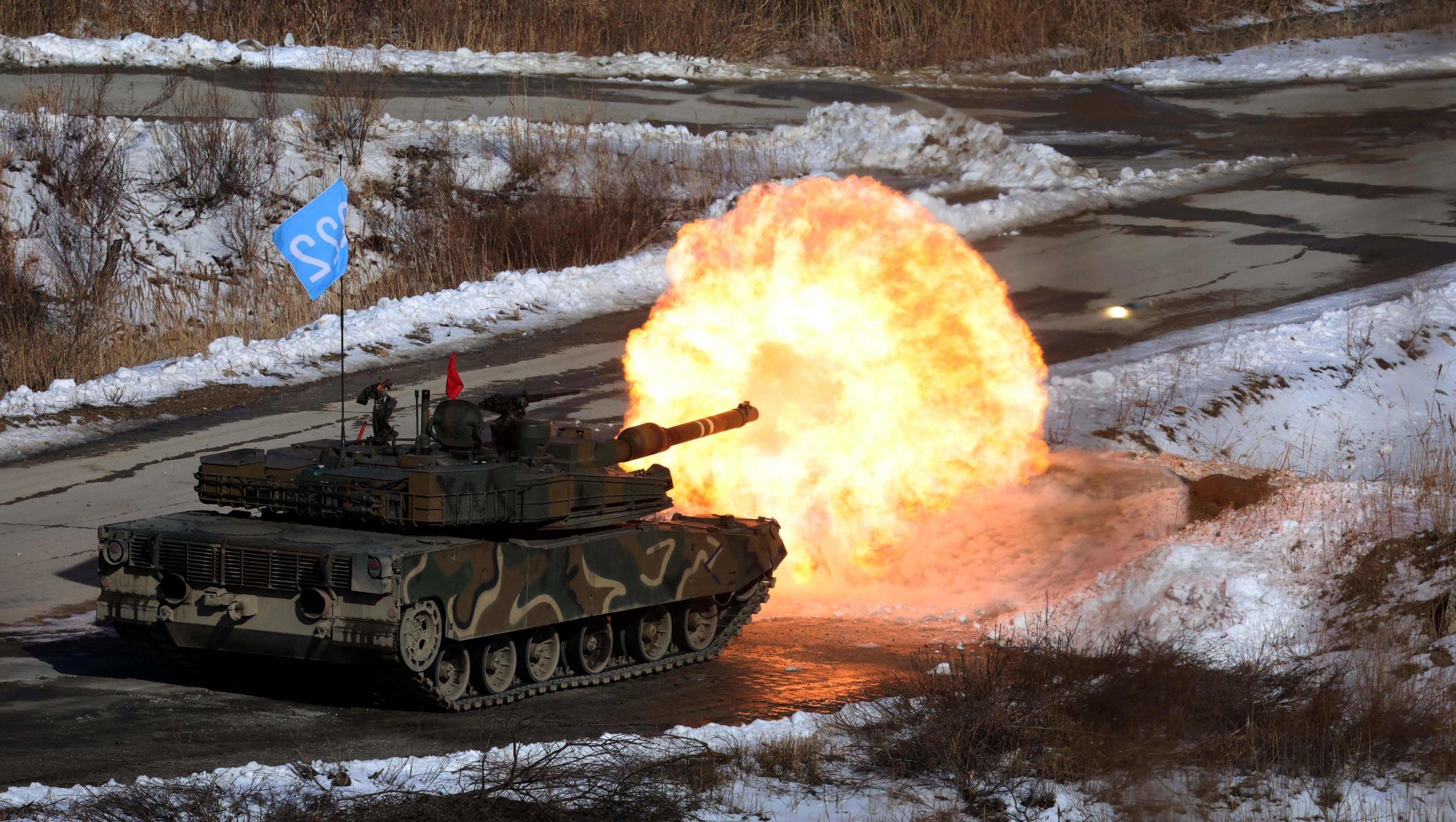US President Donald Trump has issued what analysts are calling an "advance warning" to Japan and South Korea , indicating that his government is gearing up to present significant security and trade requests to America’s nearest partners in the Western Pacific.
It is anticipated that Trump will insist both Tokyo and Seoul significantly increase their contributions toward hosting U.S. forces on their territories, warning of troop withdrawals unless his demands are satisfied.
The key point from his remarks is that the U.S. is no longer dedicated to protecting Japan, South Korea, or Taiwan, stated Robert Dujarric, who serves as the co-director of the Institute of Contemporary Asian Studies at Temple University’s Tokyo campus.
“If you’re a member of Japan’s governmental body and you continue to trust in the U.S. security protection, then you must be someone who also thinks [-Trump- ] has remained loyal throughout all his marital commitments,” he stated during an interview with This Week in Asia.
In the case of Tokyo and Seoul, warning signs were evident even prior to President Trump’s comments in the Oval Office last Thursday, where he criticized the longstanding U.S.-Japan security agreement as being unjust and alleged that South Korea was taking economic advantage of the United States. Currently, these warnings have reached a cacophonous level.
The United States has a strong bond with Japan," stated the U.S. president. "Although our relationship is robust, we have a distinctive agreement where we ensure their protection, yet they aren’t obligated to defend us.
That’s how the agreement is written," he stated. "Our job is to safeguard Japan. Additionally, we generate substantial economic benefits for them. Honestly, I wonder who crafts these agreements.
The Treaty of Mutual Cooperation and Security between Japan and the United States, ratified in 1951 and revised in 1960, obligates Washington to protect Japan should it be under attack. Nonetheless, Japan does not have a corresponding duty to assist the U.S. This pact has facilitated the presence of U.S. military installations throughout Japan, currently hosting approximately 50,000 American personnel.
Trump’s discontent with these arrangements isn’t recent. In his initial term, he suggested pulling back U.S. forces stationed in allied countries unless those allies increased their contributions. Recently, he escalated this stance, proposing to relocate up to 35,000 American troops from Germany. He criticized European countries for not backing his strategies—ones that align closely with Moscow’s—to conclude the conflict. war in Ukraine .
Trump stated, “We have been supporting the entire globe,” accusing Europe of exploiting the U.S. in terms of trade and defense matters. He added, “We backed NATO, covering the costs for other nations.”
In the weeks since Trump's return to office, Tokyo has been content to keep a low profile, seemingly hoping to dodge the US president's ire as he lashes out at other allies, including Canada, Mexico, Panama and Europe.
However, since Japan seems to be clearly in the line of fire, Prime Minister Shigeru Ishiba He responded hesitantly. “It’s correct that Japan doesn’t have an obligation to defend the United States, yet it does have the duty to offer military bases to them,” he stated. “I’m astonished that President Trump made such remarks.”
In the meantime, Defense Minister Gen Nakatani expressed his "utmost trust" that the U.S. would utilize every resource at its disposal, even nuclear options, to uphold its commitments as outlined in the Japan-U.S. Security Treaty.
But observers warn that it is clear Tokyo's "honeymoon period" with Trump is coming to an end.
"This marks the beginning—the 'advanced notice,' so to speak—of how Trump will handle Japan from here on out," stated Toshimitsu Shigemura, a political science and international relations professor at Tokyo’s Waseda University.
He will undoubtedly request additional funds for the forces deployed here, which is just another instance of his intimidation tactics coupled with pledges," he stated. "Despite my belief that the U.S. requires Japan as an ally in this area and considering how explicit the treaty terms are, perhaps it won’t be straightforward for President Trump to alter these arrangements independently.

Shigemura forecasted that Trump might become more lenient toward Japan in the short run if Washington lacks sufficient allies. However, he noted that this pressure could intensify once the situation in Ukraine stabilizes and tensions in Gaza subside.
However, Dujarric remained skeptical. He informed This Week in Asia that Trump's unpredictable leadership and a cabinet filled with yes-men who hesitate to challenge him might result in extreme measures being taken.
Pulling out the troops represents the harshest warning he can issue, yet it remains an option," he stated. "Though it may not occur, nothing is assured since this individual holds misguided views and is advised by individuals not renowned for their expertise.
For Japan, South Korea, and Taiwan, the moment for contingency planning has arrived, Dujarric cautioned. He emphasized, “It’s high time they prepared themselves since this U.S. administration is operating exclusively in its self-interests.”
For Japan and South Korea, conversations must take place regarding the potential necessity of acquiring nuclear weapons as a means of self-defense," he noted. "While this might not result in a negative outcome, these administrations should prepare accordingly.
More Articles from SCMP
China aims to boost gig workers and vocational training to control unemployment.
China's upscale rental sector faces challenges after Covid due to fewer expatriates and businesses.
Discover the brewer shattering gender – and age – boundaries
Life Skills: Understanding a News Article
The article initially appeared on the South ChinaMorning Post (www.scmp.com), which is the premier source for news coverage of China and Asia.
Copyright © 2025. South ChinaMorning Post Publishers Ltd. All rights reserved.
